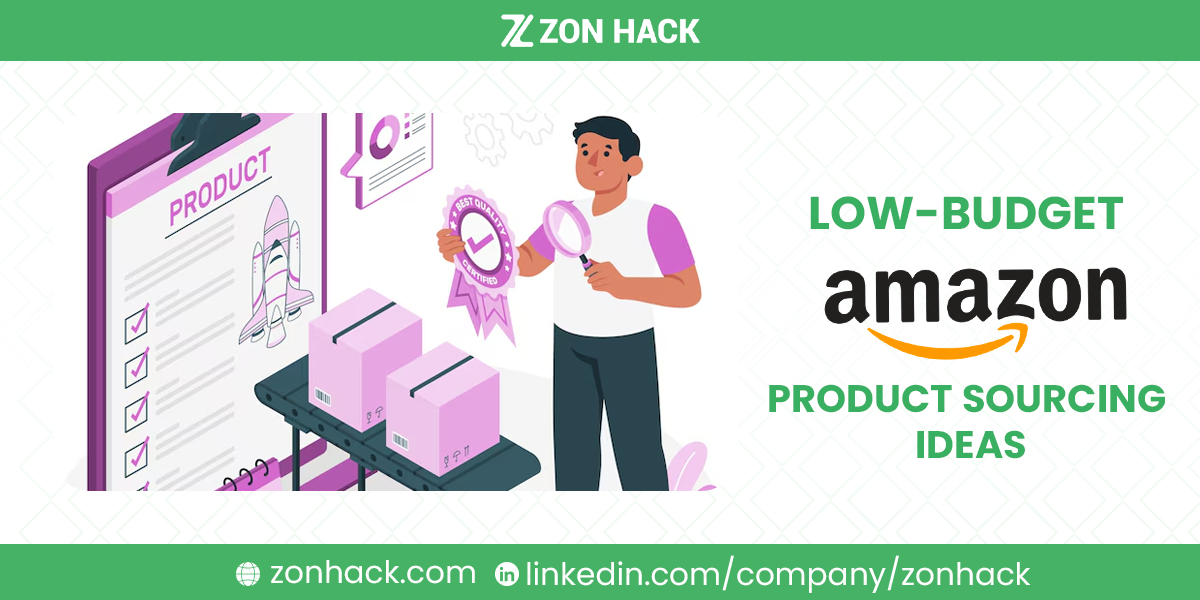Starting an Amazon business sounds scary when you don’t have much money. But what if I told you that your limited budget could actually be your secret weapon? Many successful sellers began with just a few dollars and a whole lot of determination.
The internet has changed everything for entrepreneurs. You no longer need thousands of dollars to start selling online. With some smart strategies and creativity, you can turn even a small investment into a potentially profitable business. This guide will show you exactly how to source products for Amazon without breaking the bank.
Strategies for Low-Budget Amazon Product Sourcing
Low-budget Amazon product sourcing is an art that requires creativity, strategic thinking, and a keen eye for opportunity. The e-commerce landscape offers numerous pathways for entrepreneurs with limited capital to break into selling on Amazon, each method presenting unique advantages and challenges.
Retail Arbitrage
Retail arbitrage is like being a modern-day treasure hunter in the world of commerce. This strategy transforms ordinary shopping trips into potential profit-making expeditions. Imagine walking through a Target or Walmart clearance section, smartphone in hand, scanning barcodes and discovering hidden gems that can be resold at a significant markup on Amazon.
The magic of retail arbitrage lies in understanding market value discrepancies. A product marked down to $5 in-store might command $30 or more on Amazon due to differences in local supply and demand. Success requires sharp observation skills, quick decision-making, and a deep understanding of product markets.
Most successful retail arbitrage sellers develop a systematic approach. They learn to recognize seasonal clearances, understand pricing trends, and quickly assess potential profit margins. Tools like Amazon’s seller app become invaluable, allowing instant price comparisons and profit calculations right in the store.
Online Arbitrage
Online arbitrage expands the arbitrage concept into the digital marketplace. Instead of physical store hunting, sellers scout online retailers for deeply discounted products that can be resold on Amazon. This method offers unprecedented convenience, allowing entrepreneurs to source products from the comfort of their home.
Specialized software tools have revolutionized online arbitrage. These sophisticated platforms can scan multiple online marketplaces simultaneously, identifying price differences and potential profit opportunities. Some advanced tools even calculate shipping costs, potential Amazon fees, and projected profits with remarkable precision.
The key to success in online arbitrage is developing a systematic approach. Successful sellers create networks of trusted online sources, understand seasonal pricing fluctuations, and continuously refine their sourcing strategies. They treat product hunting like a strategic game, always looking for that perfect deal.
Wholesaling
Wholesaling represents a more structured approach to Amazon product sourcing. This method involves purchasing products directly from manufacturers or distributors in bulk, typically at significantly reduced prices. While it requires more upfront investment compared to arbitrage methods, it offers more stability and potential for consistent income.
Building relationships with suppliers becomes crucial in wholesaling. Successful sellers don’t just look for the lowest price—they seek partners who offer reliable products, consistent quality, and potentially favorable payment terms. Many start by negotiating smaller initial orders, gradually building trust and purchasing power.
The most effective wholesalers develop deep product knowledge. They understand market trends, can predict seasonal demand, and know exactly how to position their products for maximum visibility and sales on Amazon.
Print-on-Demand Services
Print-on-demand services offer a unique opportunity for creative entrepreneurs with minimal upfront costs. This model allows sellers to create custom-designed merchandise like t-shirts, mugs, and posters without holding any physical inventory. The service handles printing and shipping, leaving the seller to focus on design and marketing.
Success in print-on-demand requires a combination of creative design skills and market understanding. The most successful sellers research trending designs, understand niche markets, and create products that resonate with specific audience segments. It’s part artistic expression, part strategic marketing.
Auctions and Thrift Shops
Auctions and thrift shops represent a treasure hunt for potential Amazon sellers. These venues offer opportunities to find unique, often undervalued items that can be resold at a significant profit. Success requires a trained eye, deep product knowledge, and the ability to quickly assess an item’s potential market value.
The most successful thrift and auction buyers develop specialized knowledge in specific product categories. They understand condition requirements, know how to spot hidden gems, and can quickly calculate potential profit margins. It’s a strategy that combines detective work with entrepreneurial spirit.
eBay Sourcing
eBay provides another avenue for low-budget product sourcing, offering wholesale lots, liquidation sales, and bulk purchase opportunities. Successful eBay sourcing requires careful research, understanding of shipping logistics, and the ability to identify potentially profitable product lots.
Strategic eBay buyers learn to look beyond the obvious. They understand how to factor in all potential costs, assess product conditions, and identify opportunities that others might miss. It’s a method that rewards patience, research skills, and strategic thinking.
Conclusion
Selling on Amazon isn’t about how much money you start with. It’s about being smart, learning quickly, and staying persistent. Every big seller started exactly where you are right now – with a dream and limited resources.
The journey won’t always be smooth. You’ll make mistakes. Some products won’t sell. But each failure is a lesson that brings you closer to success. The most important thing is to keep moving forward, keep learning, and never give up on your entrepreneurial dream.

